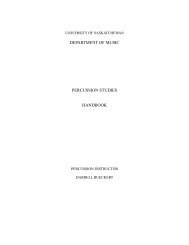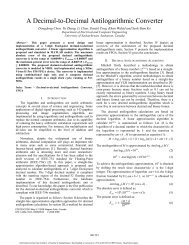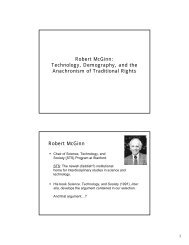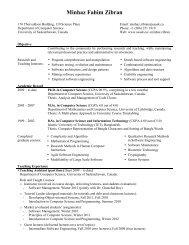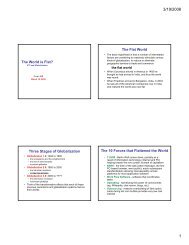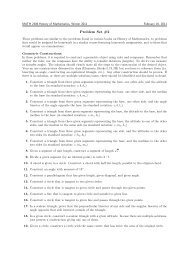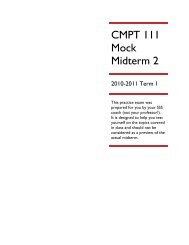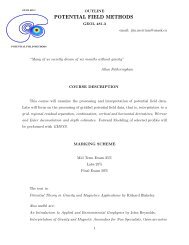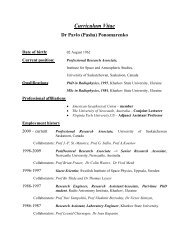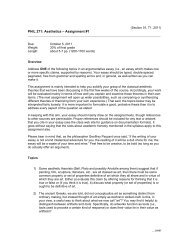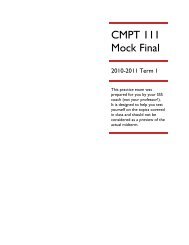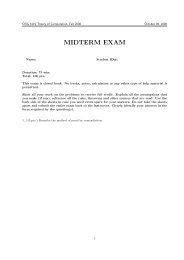Water Resources Engineering - Homepage Usask
Water Resources Engineering - Homepage Usask
Water Resources Engineering - Homepage Usask
You also want an ePaper? Increase the reach of your titles
YUMPU automatically turns print PDFs into web optimized ePapers that Google loves.
C4. LAND EVALUATION<br />
(KUL-code: I839 (Th); I700 (Pr))<br />
Lecturer: DECKERS J.<br />
ECTS-credit: 5 pts<br />
Contact hours: 30 hrs. of theory/30 hrs. of practical<br />
Prerequisites: Basic knowledge of general pedology<br />
Time and place: 2 nd semester, 13 sessions of 3 hours each, K.U.Leuven<br />
Course syllabus: Lecture notes<br />
Evaluation: Oral examination, submission of a paper and quotation on seminar work<br />
Comparable handbook: Driessen, P., Deckers, J., Spaargaren, O., and Nachtergaele, F., (Eds), 2001. Lecture<br />
Notes on the Major Soils of the World, World Soil <strong>Resources</strong> Reports Nr. 94, FAO,<br />
Rome, Italy.<br />
Deckers, J., Nachtergaele, F., Spaargaren, O., 1998. World Reference Base for Soil<br />
<strong>Resources</strong>. Introduction, ACCO Publishers, ISBN 90-334-4124-1, 165 pp.<br />
Additional information: Students who have interesting case studies from their home country are welcome to<br />
bring them during the seminars for discussion.<br />
Learning objectives:<br />
This course aims to bring awareness among the students on land as a carrier of all our economic activities and<br />
of the natural ecosystem. The students therefore will have to get acquainted with basic principles of soil,<br />
climatic and socio-economic assessment as well as with specific requirements of land utilization types. For the<br />
end terms more emphasis is given on general comprehension than to mere encyclopedial knowledge. The<br />
alumni of this programme should be well enough informed to ask the right questions, to think in an<br />
interdisciplinary way, whenever they are in a decision making position.<br />
Course description:<br />
The objective of the course Land Evaluation is to train the students in a series of methodologies and approaches<br />
to predict the suitability of land for specific uses from land properties. These approaches are based on the<br />
physical, chemical and biological land properties, and incorporate hydrological features, socio-economic factors<br />
and environmental and health aspects.<br />
The course encompasses the following topics:<br />
1. Basic principles of land evaluation;<br />
2. Agro-ecological zoning: an overview of soil and climate inventory procedures;<br />
3. Requirements of land utilization types;<br />
4. Land evaluation for irrigation;<br />
5. Sustainability issues for land evaluation with emphasis on irrigated agriculture; and<br />
6. Processes of land degradation and soil conservation measures for sustainable land use.<br />
7. Land evaluation for forestry<br />
8. Land evaluation for extensive grassland<br />
9. Global change issues<br />
The practical exercises aim to highlight the practice of land evaluation, through excursions, contacts with guest<br />
speakers and the analysis of land evaluation case studies.<br />
9 / Course syllabi



